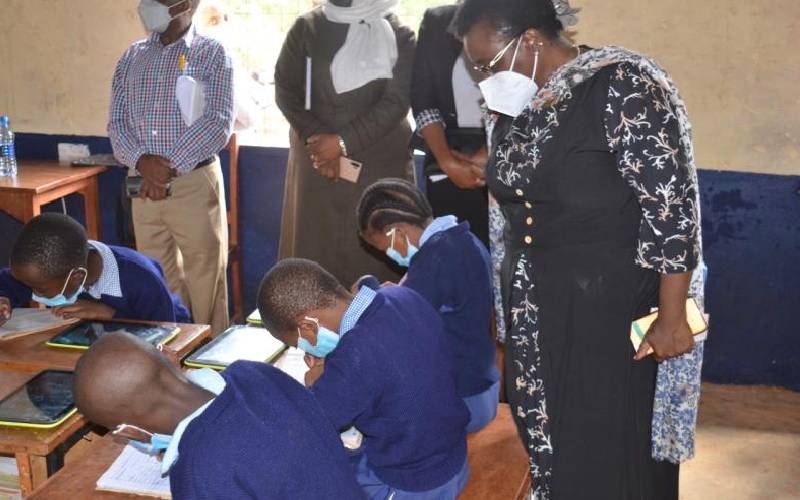
The Principal Secretary for Curriculum Reforms and Implementation Professor Fatuma Chege interacts with pupils at Kitivo Primary School in Mwaatte Sub-county, Taita-Taveta county when she officially launched access to the internet. [Renson Mnyamwezi, Standard]
Somewhere in 2030, Competence Based Curriculum (CBC) graduates will be in town looking for jobs. Better, as the system aims to, they will be creating jobs. In the latter scenario, we shall have no job seekers, no beggars, and no need for aunties, uncles and cousins to get government jobs, of course at a price. Therefore, the young women and men graduates will be our saviours. I cannot wait to see the new 2030 Kenya.